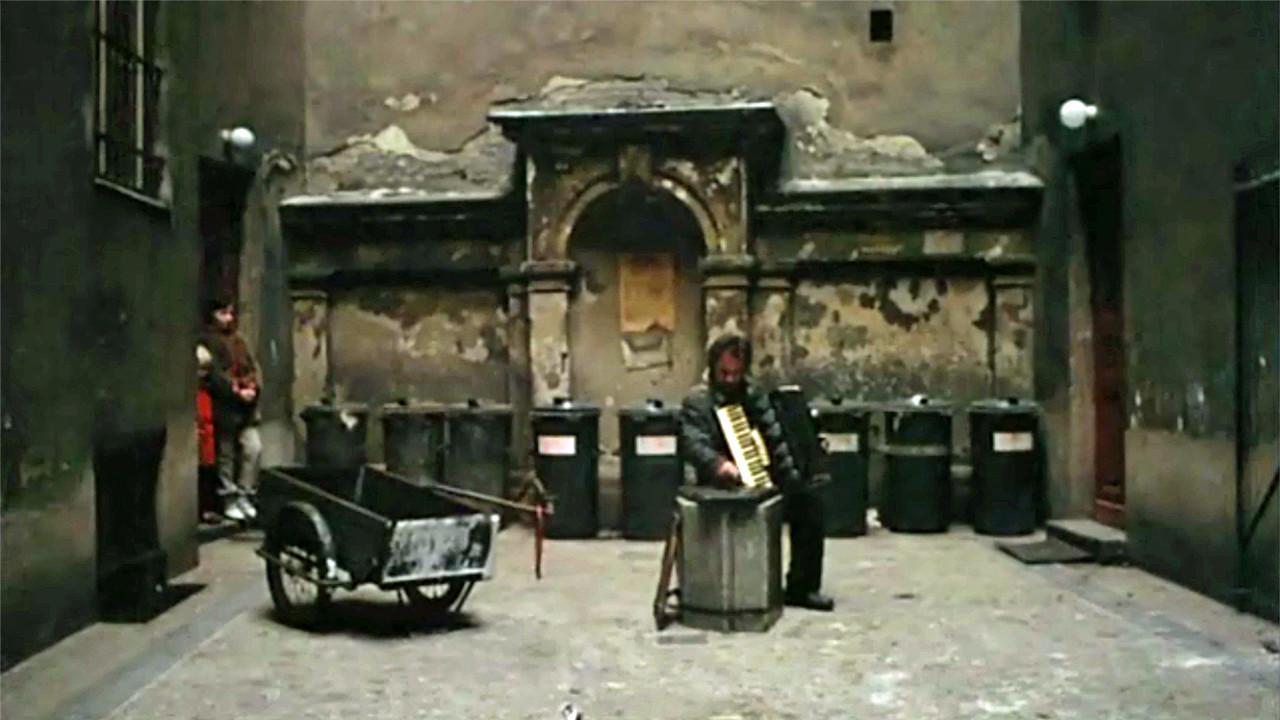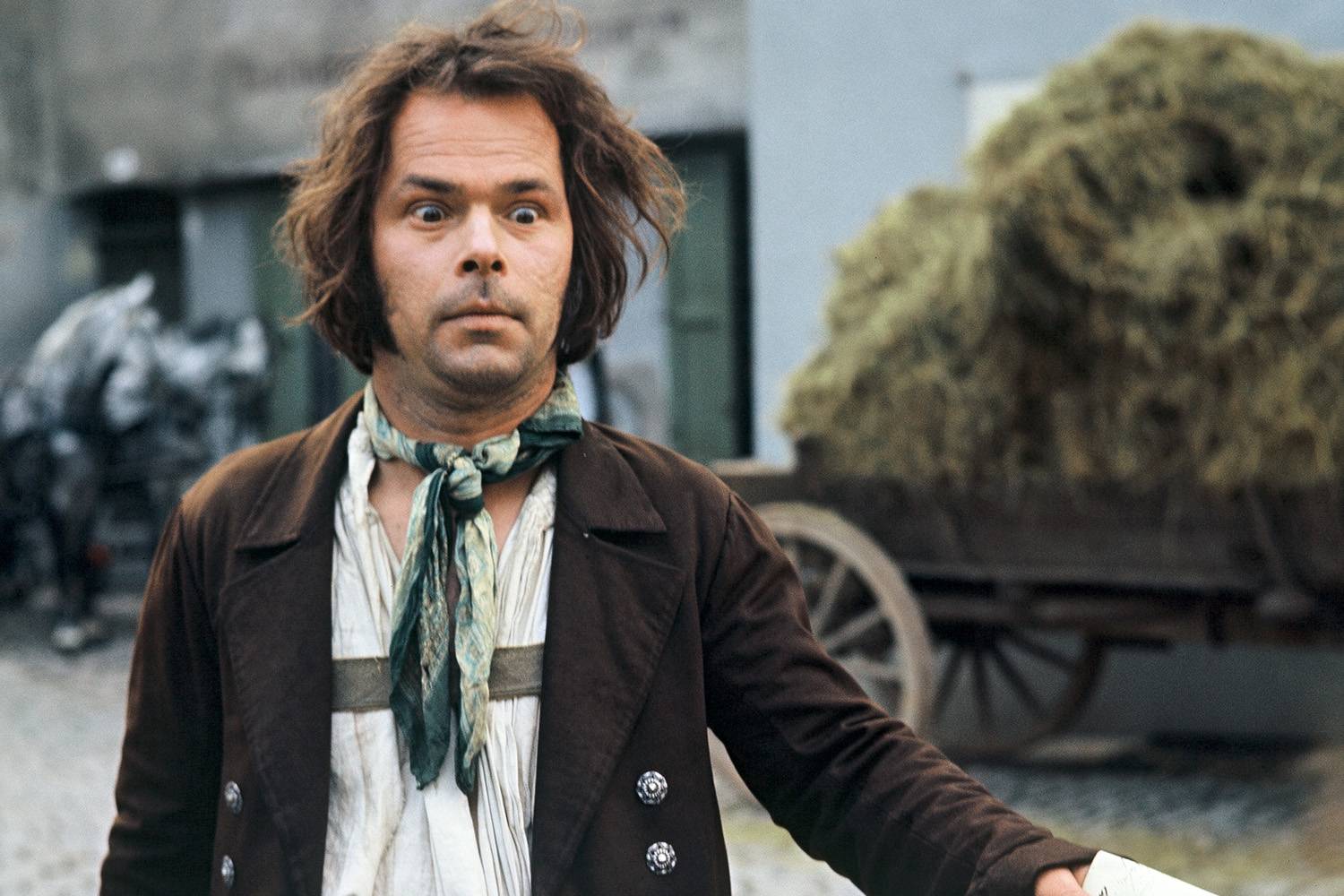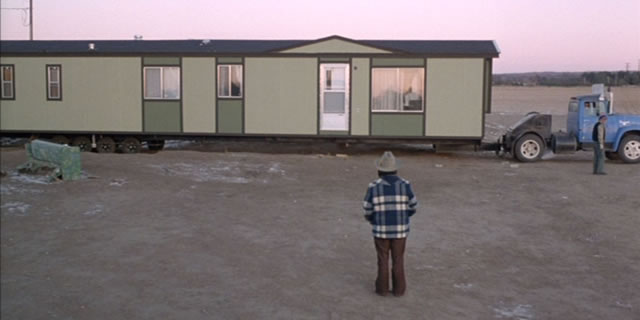~ by john cribbs ~
"Well, it seems to me that my coming into this world was a very hard fall."
Of the many memorable scenes in Stroszek, one that's always stuck in my mind is the meeting between Bruno and the pediatrician in the neonatal ward. The doctor laments the physical state of a premature infant, but demonstrates the child's uncanny grip reflex by letting the baby hang from his fingers. "We simply know so little about human beings," he muses. It appears at first that the doctor is horribly manhandling the screaming infant, but clearly he has a gentle and expert touch and even lulls the child to sleep by cradling it against his chest. This shot is mirrored later in the film, when the three outcasts have immigrated across the sea to live in a trailer home in Wisconsin and an apron-clad Eva holds Bruno against her shoulder in a motherly embrace. Of course later Eva will grow tired of him and run off with a trucker, abandoning Bruno to homelessness and death. Tenderness and cruelty, so unrecognizable and interchangeable in everyday life, are as naturally imbued as they are indifferently allocated.
Bruno S was himself an example of tenderness that came from cruelty. His mother was a prostitute who beat him so severely that he lost the ability to speak as a child; consequently he was sent to a Nazi-run institution for retarded boys where he was tortured regularly along with his fellow detainees. After learning to play music from a series of orphanages and asylums after the war, he took a job as a forklift driver at a steel factory while performing original songs with his glockenspiel and accordion in the alleys of Berlin on the weekends. His inclusion in a documentary on street musicians brought him to the attention of Werner Herzog, who cast him in the title roles of two feature films: The Enigma of Kaspar Hauser (1974) and Stroszek (1977). Some have claimed the eccentric Herzog had exploited Bruno for the sake of having a "weird personality" in his movies like that of crazed thespian Klaus Kinksi, but anyone who's seen the films knows that Herzog is like that pediatrician, protective and nurturing of his star, not to mention admiring of and puzzled by him. "What can I say about this other than I know I did the right thing," Herzog said. "For many people my hiring of a man like Bruno was too far out of the ordinary."
Herzog took a while to gain Bruno's trust, allowing him to rant and rave while the crew waited for the tirade to end so that the non-actor felt comfortable on set. Herzog knew what kind of a background his leading man came from - several true events from Bruno's childhood are revealed in Stroszek - and knew he had to draw him out carefully. Herzog also knew how to use Bruno, casting him as a man displaced in society in both films. As Kaspar Hauser, chained in isolation for the first 16 years of his life before being abruptly released into a civilized 19th century town, Bruno's punctilious, over-enunciated speech patterns and expressionistically perplexed facial contortions were uniquely alien. His performance was undeniably comedic yet naturally sympathetic, helping him stand out among the people from the village who had been taught to conform and behave a certain way all their lives. Bruno/Kaspar's observations of his surroundings are at the same time childlike and sagacious, a man seemingly shocked by his own existence but accepting of it without question, like the ambiguously-punctuated inquiry printed across the back of the ski-lift he rides to his fate at the end of Stroszek, "Is this really me!"
 The director saw somewhere inside Bruno S every man's terror and confusion of a human-run world, and a knowledge of how it can punish "not physically, but spiritually." In both films, Herzog used his character to question whether logic and rationality were as honest as creativity and distinctness. When he's being released from prison and asked to state his name, Stroszek points out how stupid it is to ask his name when he's been incarcerated in the facility for the last several months. In Kaspar Hauser, a deduction-based riddle involving a village of liars and truthtellers is just as correctly answered by the "foundling" thinking outside the box and answering the question based on internal logic rather than scientific rationality, suggesting that the phrase from the American title "every man for himself" is as much a positive individual aphorism as a callous social connotation. Bruno's characters, like the man himself, existed outside the boundaries of conventional understanding and language, but Herzog maintained that it was language of the world that was frightening and disoriented. The auctioneer of the trailer home in Stroszek rattles off in the incomprehensible "poetry of capitalism" and then humorously tells the homeless, German-speaking immigrants "I'm sorry...I can't understand you." Bruno existed outside of rational society, collecting treasures from the garbage and playing his music on the street like a "freak." Yet his bizarre presence and obsessive behaviorisms were familiar, there was something recognizable in this man's struggle against society to any of us who ever felt opposed to the conformities of the "normal" world: we too were "Bruno S.," or "Brunos," trying to preserve the qualities in ourselves that inhumanity may have created but could never succeed in exterminating. The trailer home might get taken away and our brains may be dissected to explain the eccentric differences in our personalities, but they can never take away the language and perceptions that make us who we are - you can't stop the dancing chicken!
The director saw somewhere inside Bruno S every man's terror and confusion of a human-run world, and a knowledge of how it can punish "not physically, but spiritually." In both films, Herzog used his character to question whether logic and rationality were as honest as creativity and distinctness. When he's being released from prison and asked to state his name, Stroszek points out how stupid it is to ask his name when he's been incarcerated in the facility for the last several months. In Kaspar Hauser, a deduction-based riddle involving a village of liars and truthtellers is just as correctly answered by the "foundling" thinking outside the box and answering the question based on internal logic rather than scientific rationality, suggesting that the phrase from the American title "every man for himself" is as much a positive individual aphorism as a callous social connotation. Bruno's characters, like the man himself, existed outside the boundaries of conventional understanding and language, but Herzog maintained that it was language of the world that was frightening and disoriented. The auctioneer of the trailer home in Stroszek rattles off in the incomprehensible "poetry of capitalism" and then humorously tells the homeless, German-speaking immigrants "I'm sorry...I can't understand you." Bruno existed outside of rational society, collecting treasures from the garbage and playing his music on the street like a "freak." Yet his bizarre presence and obsessive behaviorisms were familiar, there was something recognizable in this man's struggle against society to any of us who ever felt opposed to the conformities of the "normal" world: we too were "Bruno S.," or "Brunos," trying to preserve the qualities in ourselves that inhumanity may have created but could never succeed in exterminating. The trailer home might get taken away and our brains may be dissected to explain the eccentric differences in our personalities, but they can never take away the language and perceptions that make us who we are - you can't stop the dancing chicken!
"Nothing lives less in me than my life" is, like the opening quote, a line from Kaspar Hauser that fit Bruno S perfectly. Just as Kaspar and Stroszek were somewhat uncontrollably removed from their environments, Bruno's sudden reinvention as a movie star was something that happened to him rather than a result of his own actions. That he came into Herzog's life at that time and place is one of the most fortuitous machinations of fate in the history of German film. Farewell to the Unknown Soldier of Cinema.
~ AUGUST 11, 2010 ~

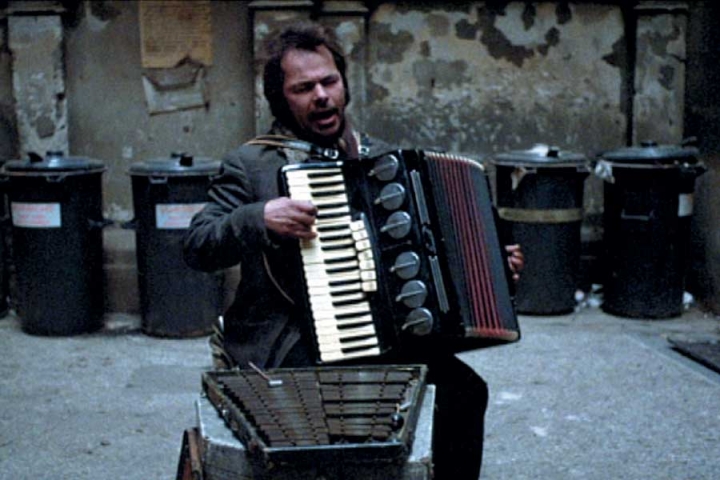
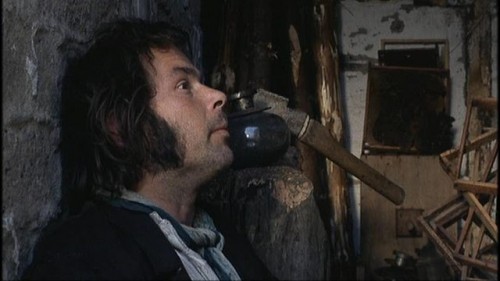
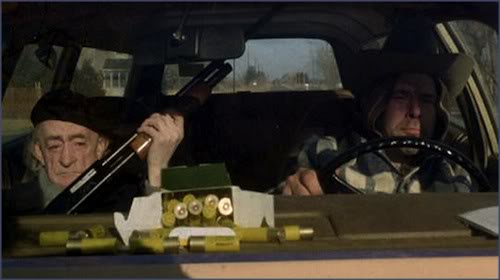
 The director saw somewhere inside Bruno S every man's terror and confusion of a human-run world, and a knowledge of how it can punish "not physically, but spiritually." In both films, Herzog used his character to question whether logic and rationality were as honest as creativity and distinctness. When he's being released from prison and asked to state his name, Stroszek points out how stupid it is to ask his name when he's been incarcerated in the facility for the last several months. In Kaspar Hauser, a deduction-based riddle involving a village of liars and truthtellers is just as correctly answered by the "foundling" thinking outside the box and answering the question based on internal logic rather than scientific rationality, suggesting that the phrase from the American title "every man for himself" is as much a positive individual aphorism as a callous social connotation. Bruno's characters, like the man himself, existed outside the boundaries of conventional understanding and language, but Herzog maintained that it was language of the world that was frightening and disoriented. The auctioneer of the trailer home in Stroszek rattles off in the incomprehensible "poetry of capitalism" and then humorously tells the homeless, German-speaking immigrants "I'm sorry...I can't understand you." Bruno existed outside of rational society, collecting treasures from the garbage and playing his music on the street like a "freak." Yet his bizarre presence and obsessive behaviorisms were familiar, there was something recognizable in this man's struggle against society to any of us who ever felt opposed to the conformities of the "normal" world: we too were "Bruno S.," or "Brunos," trying to preserve the qualities in ourselves that inhumanity may have created but could never succeed in exterminating. The trailer home might get taken away and our brains may be dissected to explain the eccentric differences in our personalities, but they can never take away the language and perceptions that make us who we are - you can't stop the dancing chicken!
The director saw somewhere inside Bruno S every man's terror and confusion of a human-run world, and a knowledge of how it can punish "not physically, but spiritually." In both films, Herzog used his character to question whether logic and rationality were as honest as creativity and distinctness. When he's being released from prison and asked to state his name, Stroszek points out how stupid it is to ask his name when he's been incarcerated in the facility for the last several months. In Kaspar Hauser, a deduction-based riddle involving a village of liars and truthtellers is just as correctly answered by the "foundling" thinking outside the box and answering the question based on internal logic rather than scientific rationality, suggesting that the phrase from the American title "every man for himself" is as much a positive individual aphorism as a callous social connotation. Bruno's characters, like the man himself, existed outside the boundaries of conventional understanding and language, but Herzog maintained that it was language of the world that was frightening and disoriented. The auctioneer of the trailer home in Stroszek rattles off in the incomprehensible "poetry of capitalism" and then humorously tells the homeless, German-speaking immigrants "I'm sorry...I can't understand you." Bruno existed outside of rational society, collecting treasures from the garbage and playing his music on the street like a "freak." Yet his bizarre presence and obsessive behaviorisms were familiar, there was something recognizable in this man's struggle against society to any of us who ever felt opposed to the conformities of the "normal" world: we too were "Bruno S.," or "Brunos," trying to preserve the qualities in ourselves that inhumanity may have created but could never succeed in exterminating. The trailer home might get taken away and our brains may be dissected to explain the eccentric differences in our personalities, but they can never take away the language and perceptions that make us who we are - you can't stop the dancing chicken!